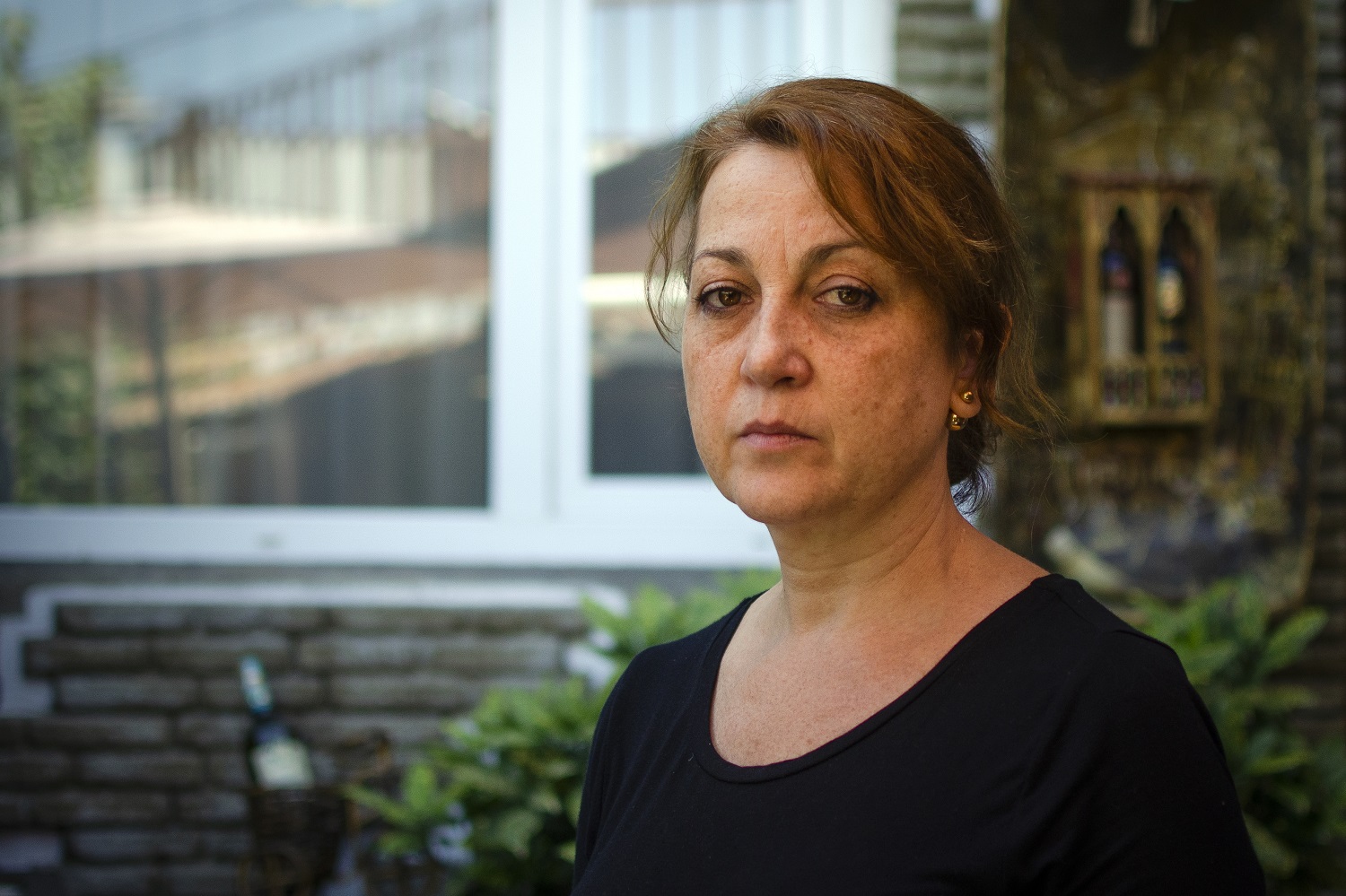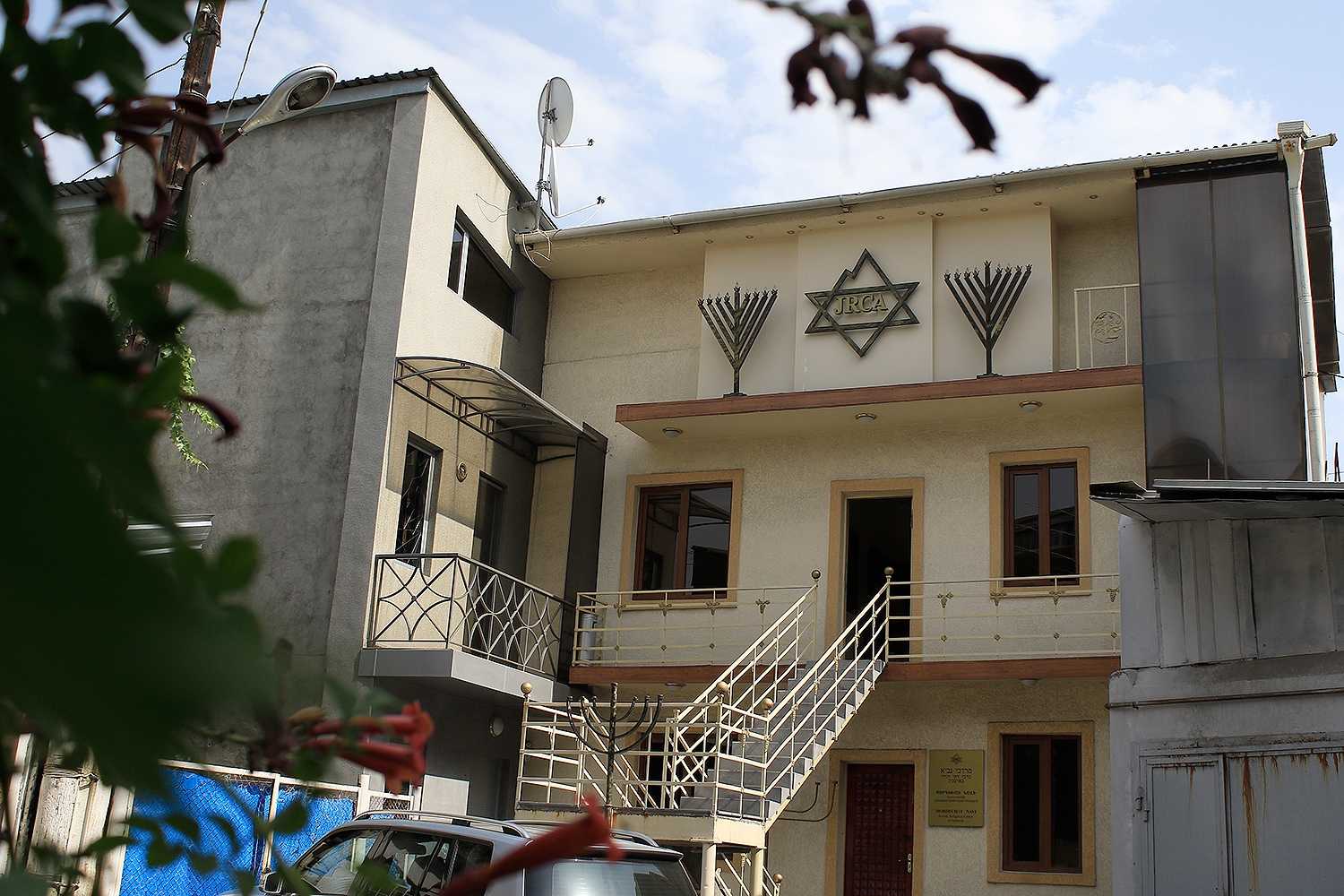

Vitali Safarov, a 25-year-old Jewish Georgian man, was stabbed to death in Tbilisi in September 2018. Two men were jailed for 15 years each on charges of group murder, however, the court ruled his killing was not ethnically motivated despite witness testimony that he was killed by neo-Nazis because he was Jewish.
The family of the deceased have appealed the judgment as they are confident that Safarov was the victim of a hate crime.
[Read more about Vitali Safarov’s case on OC Media: Tbilisi court dismisses ‘hate motivation’ in Safarov murder while jailing two for 15 years]
His mother, Marina Alanakyan, says she has to know why her son was killed. Here is her story.
‘Nobody dared tell me’
‘Mum, I’ll come home!’ — These are the last words my son said to me. It’s been nine months since his death and I tell this story over, and over again. I remember each and every second of it.’
‘It was 29 September when Vitali returned from his work trip. I hadn’t seen him for two weeks. The last time I spoke to him, he told me he was going out with his friends and that he would come back home.’
‘I woke up at 3:00 and saw that he wasn’t here. Usually, I called him to ask him where he was. As a mother, I feel relaxed when the kids are home.’
‘I thought they would probably both be home and decided not to call them, not to wake them up.’
‘I woke up with swollen eyes at 7:00. I had a terrible dream that there were a lot of people and that Vitali was underneath them. It looked like a fight, but “Vitali” and “fight” just didn’t fit together. When I got up my eyes were still wet.‘
‘My daughter told me that Vitali hadn’t come home. She assumed he had stayed at work and suggested I shouldn’t call him, as I might wake him up. I wasn’t expecting anything bad but told her that I had a bad dream and didn’t want to keep thinking too much about it.’
‘We were sitting in the yard together with our neighbours when the phone rang. I was expecting something so I asked them who was calling. They said it’s nothing — the police had driven by and asked if Vitali Safarov lived here, and whether “he’s a good guy or a bad guy”.’
‘I rushed over and learned that there had been a fight in [central Tbilisi’s] Pushkin Square. The only bar I knew there was Warszawa because Vitali used to go there. So we drove there, but somebody called midway and said that Vitali had been stabbed.’
‘People were running in the yard. Somebody told me they were rushing to the hospital to see him. But they already knew the truth — they were running away from me, to yell and cry far away from me. Nobody dared tell me. My daughter was fidgeting anxiously, saying I shouldn’t be worried. He was alive.’
‘ “Why is she talking about life?”, I thought. I wasn’t thinking about death at all.’
‘Then a neighbour screamed and I saw our housekeeper nudging them, telling them that I was watching. At that moment I knew something horrible had happened and I fainted.’
‘He had the same smile’
‘It’s been nine months already and sometimes I still wonder, did this really happen? Maybe it’s a dream? I still don’t believe it until I go to the cemetery. I look at the photos and I don’t want to believe it. Vitali was always travelling, he was always away, and sometimes I still think that he’s somewhere out there. My brain is blocking the fact that it really happened.’
‘I went through so many things during these nine months…’
‘There were trials, intimidation… And many more things still lie ahead.’
‘I remember the first day, when the Jews and the rabbis came. “Did they really kill him because he was Jewish?”, they asked. I knew nothing of this. People were bringing all of this information to me themselves.’
‘I constantly heard the words “because of his smile, because he smiled”… I wondered, do people get killed because of their smile now?’
‘When they brought Vitali home, my daughter warned me to brace myself because I wouldn’t be able to see him the way I remembered he was. His face had been cut, but he had the same smile.’
‘Knives, darkness, and death’
‘I couldn’t look at my son. I glimpsed at a photo of his wounds. He had ten wounds, four of them lethal. His life was stolen in the blink of an eye.’
‘How could one person inflict so many wounds? How much hatred should one have to stab someone so many times?’
‘One week later the mother of [the murderer] Kandelakishvili called me and asked for a meeting. Initially, I thought I should, but then I changed my mind. I found her on Facebook through her phone number. She was posing together with her son in a photo. That’s where I saw that Kandelakishvili had a swastika tattoo.’
‘I knew nothing about the hate motivation before then. When they called, it made me find them and see who they were.’
‘I started reading comments he and [the key witness] Shanava had made online. I was angry at how disgusting their comments were. It was as if all these groups of people were sitting around me and yelling disgusting things out loud. I felt horrible, but I was saving everything. Shanava deleted them all, but I have taken screenshots of many interesting things.‘
‘Look at their photos, Nazi salutes, eyes blurred out, posing like gangsters. Swastikas and Hitler everywhere…’
‘Shanava and Kandelakishvili were discussing a knife. They said it was poor because it had only ever cut a sausage, that it wasn’t a hero yet. So they made a knife a hero by killing my son?!’
‘Shanava testified that Kandelakishvili had a Swastika [tattoo].’
‘The convicted claim that they are not fascists because there is no document proving it. Does that need a document? Do killers get registered as such?’
‘Why did they kill my son, who had never harmed a soul in his life? You can compare my son’s Facebook pages with theirs — here is the sun, smiling, and love, while there there are knives, darkness, and death everywhere.’
‘I don’t know what fascists want’
‘I have never experienced antisemitism myself, however, I always knew that there was hatred out there in Georgia. In my childhood, we had always heard phrases “these Tatars [Azerbaijanis], Armenians, Jews!”. I didn’t pay attention to it, but I wouldn’t imagine it could grow into such a horrible thing. That my family, which was always open and welcoming to any ethnicity would become the victim.
‘We have five ethnicities in our bloodline, we don’t distinguish people by ethnicity; why should we? There is good and bad everywhere, this doesn’t mean that Georgians are bad. Such [hate] groups are everywhere. However, the government should act swiftly. If they don’t, it may become worse. My son, who was protecting human rights, knew about them. But there are others who don’t.’
‘My friends ask me, “do such groups really exist?”. Yes, they do, and they are very dangerous. But if there were a law against them, they won’t demonstrate so easily. When the police search them, find their knives, and detain them, they won’t carry them again. How is it possible that they demonstrate hatred on Facebook so openly?’
‘I don’t know what the fascists want. We have a beautiful country full of opportunities. Probably they couldn’t find their place in this life, so they are involved in these groups and feel like heroes. They want to save this country from something, but from what?’
‘We should show these opportunities and this love to our children. This is how we raised our children. My son had a different vision of the world.‘
The shame
‘The court sentenced each of them to 15 years in jail for murder, but dismissed the charges of ‘hate motivation’. The motivation is crucial for me. What did they kill my son for? Why so brutally? Shouldn’t I know why they did it so brutally?’
‘When the court determines the motivation, the government will understand that these groups are dangerous and adequate laws will be adopted — laws that will protect other children from this disaster.’
‘The lawyers of the convicted claimed to have saved Georgia from shame when the court dismissed the hate motivation [in the murder]. The shame is that they are hiding this problem. When there is a problem, you should speak about it openly, to see it, and to resolve it.’
‘Why should I hide it? To ruin others’ lives as well? We should speak up in order to make sure the law protects us.’
‘But what’s in it for me now? I thought I had a peaceful life. I see so much evil now… We should not allow them to have their way in Georgia.’








